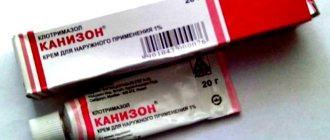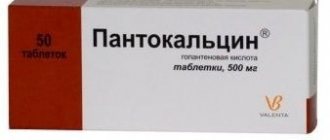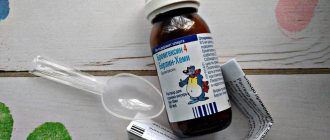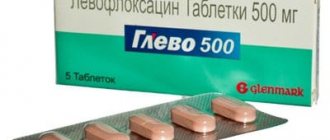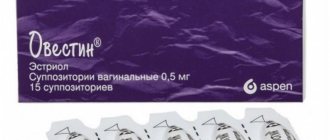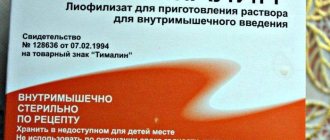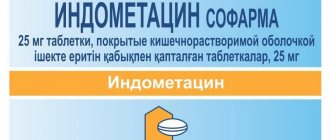- February 24, 2020
- Cardiology
- Ksenia Kulshina
“Asparkam avexima” is a relatively new drug that has already earned the trust of doctors and patients due to its positive effect on the state of the cardiovascular system, as well as important assistance in the treatment of convulsive conditions and intoxication with cardiac glycosides. The drug also spares the kidneys and liver, so it can be used by all segments of the population, starting from the age of 14, and the dosage is selected individually for each case. In addition, the population is attracted by the fairly low price, which is 2-3 times lower than that of the similar “Panangin”.
The drug has been known to doctors for a very long time, because back in 1985, an official study of its effectiveness was conducted, which showed that after using aspartate in patients with cardiac arrhythmia, the heart rhythm was completely normalized. Therefore, in this article we will look at the drug in detail.
Release form and composition
The drug is produced in the form of tablets: white, flat-cylindrical (in blister packs of 10 pcs., 2 packs in a cardboard pack; in blister packs of 20 pcs., 1 pack in a cardboard pack; in polymer jars of 20 pcs., in cardboard pack 1 can. Each pack also contains instructions for use of Rimantadine Avexim).
1 tablet contains:
- active ingredient: rimantadine hydrochloride – 50 mg;
- auxiliary components: potato starch, lactose (milk sugar), calcium stearate, talc.
Pharmacological properties
Pharmacodynamics
Rimantadine Avexima is an antiviral drug. Various strains of group A virus are sensitive to its active substance, rimantadine. Rimantadine is a weak base, the mechanism of action of which is due to an increase in the acidity (pH) of endosomes with the membrane of vacuoles surrounding viral particles immediately after their penetration into the cell. By preventing acidification in these vacuoles, rimantadine helps block the process of fusion of the viral envelope with the endosome membrane. Thus, the transmission of the genetic material of the virus into the cell cytoplasm is prevented. In addition, the release of viral particles from the cell is inhibited, which leads to interruption of transcription of the viral genome.
Pharmacokinetics
After oral administration, absorption of rimantadine in the intestine occurs almost completely, but slowly. The maximum concentration (Cmax) in blood plasma is 181 ng/ml when used at a dose of 100 mg 1 time per day, and 416 ng/ml when used at a dose of 100 mg 2 times a day. The concentration of the active substance in nasal secretions is 50% higher than in plasma.
Plasma protein binding is approximately 40%. The volume of distribution in adults is 17–25 l/kg, in children – 289 l.
Rimantadine is metabolized in the liver.
It is excreted through the kidneys mainly in the form of metabolites (75–85% of the dose taken), unchanged - 15%. Half-life (T1/2) – from 24 to 36 hours.
In chronic renal failure, T1/2 increases by 2 times. The possible accumulation of toxic concentrations of rimantadine in renal failure and elderly patients should be taken into account. As a result, the dose of Rimantadine Avexim must be adjusted in proportion to the decrease in creatinine clearance (CC).
Possible side effects
The drug is usually well tolerated by patients. But in some cases, after its use, the following undesirable reactions may develop:
- from the gastrointestinal tract
- excessive gas formation, decrease or complete loss of appetite, nausea and vomiting, pain in the epigastric area, drying of the oral mucosa; - from the central nervous system
- anxious sleep, decreased concentration, the appearance of anxiety and asthenia, headache and dizziness, irritability; - from the hepatobiliary system
- increase in bilirubin concentration.
People who are hypersensitive to any of the ingredients may also develop immune system reactions (allergy symptoms). They usually have cutaneous manifestations. In this case, patients develop a rash and itching.
Contraindications
Absolute:
- chronic and acute kidney diseases;
- acute period of liver diseases;
- thyrotoxicosis;
- lactase deficiency, lactose intolerance, lactose or isomaltose malabsorption syndrome;
- pregnancy period;
- lactation;
- children under 7 years of age;
- hypersensitivity to the components of the drug.
It is recommended to take Rimantadine Avexima with caution in diseases of the gastrointestinal tract, liver failure, arterial hypertension, epilepsy, and cerebral atherosclerosis.
Analogs
Analogues of Andipal Avexim are drugs whose active ingredients include metamizole sodium, papaverine, dibazole and barbiturates or those drugs that have an identical mechanism of action on the body:
- Pentalgin is prescribed for the relief of various types of pain (headache and dental pain, joint and muscle pain, pain during menstruation). The drug is also effective in the treatment of radiculitis, neuralgia, arthritis, and migraines.
Analgin-Dibazol-Papaverine is a combination medication with properties similar to Andipal. Effective for analgesia of moderate pain of various etiologies, the vasodilating effect and antispasmodic effect reduce blood pressure and relax the muscles of organs, including the myocardium, the drug corrects the temperature balance in the body.- Reopirin - the drug is used to relieve an attack of acute and chronic radiculitis, arthritis and polyarthritis, lumbago in the back, pain during exacerbation of gout, rheumatism, polyneuritis in the acute stage, neuralgia of the facial and sciatic nerve, parametritis.
- Tempalgin is a drug intended for long-term treatment of such pathologies: neuralgia and myalgia, rhabdomyolysis and arthralgia. The medication is also effective for relieving acute headaches and toothaches. Tempalgin is used as an anesthetic during dental procedures.
Rimantadine Avexima, instructions for use: method and dosage
Rimantadine Avexim tablets are taken orally after meals with plenty of water.
Recommended dosage for the treatment of early influenza A:
- adults and children over 14 years of age: first day - 100 mg 3 times a day or 300 mg once, second and third days - 100 mg 2 times a day, fourth and fifth days - 100 mg 1 time a day;
- children aged 7–10 years: 50 mg 2 times a day;
- children aged 11–14 years: 50 mg 3 times a day.
The duration of treatment is 5 days.
To prevent influenza in adults and children over seven years of age, the drug is prescribed at a dose of 50 mg once a day. Duration of the preventive course: adults – no more than 30 days, children – no more than 15 days.
Overdose
- symptoms: in case of an overdose of Andipal Avexim, the patient experiences dizziness, severe drowsiness, and a sharp decrease in blood pressure is possible;
- therapy: the patient should be given first aid - rinse the stomach and give activated charcoal. Subsequently, symptomatic treatment is prescribed aimed at maintaining the functions of the respiratory and cardiovascular systems. To prevent serious complications, the patient must be under the supervision of a specialist.
special instructions
With the use of Rimantadine Avexim, exacerbation of existing chronic diseases is possible.
For epilepsy (including medical history), rimantadine should be prescribed in a daily dose of 100 mg simultaneously with anticonvulsant therapy. This will reduce the risk of developing an epileptic seizure caused by the antiviral drug.
The use of the drug to prevent influenza caused by virus A is advisable during an influenza epidemic, after contact with patients, with a high risk of infection in the event of the spread of infection in closed groups.
In influenza B virus, rimantadine exhibits an antitoxic effect. The emergence of viruses resistant to the drug is possible.
Impact on the ability to drive vehicles and complex mechanisms
During treatment with Rimantadine Avexim, patients are advised to exercise caution when engaging in potentially hazardous activities (including driving), which require increased concentration and rapid psychomotor reactions.
Reactions with other drugs
These tablets cannot be used in combination with other magnesium- or potassium-containing drugs, so as not to cause an overdose of ions in the body. These drugs include potassium-containing diuretics (which are also used in the treatment of chronic heart failure), cyclosporine, heparin, which increases blood viscosity and prevents the free passage of ions, enzyme inhibitors, and glucocorticoids. If you take any of the drugs together, extremely severe unwanted complications can occur, including arrhythmia and cardiac asystole. These are very dangerous conditions that are guaranteed to have a serious impact on the body weakened after illness. Therefore, you cannot prescribe the drug yourself, and before using it, even if it has been prescribed before, you need to talk to your doctor. It is not recommended to use the drug with any diuretics.
If the patient suffers from bleeding disorders, he also needs to initially warn the doctor that he is taking or has taken Asparkam so that it does not react with inhibitory substances and lead to cardiac arrest.
Potassium ions enhance the negative reaction from the use of cardiac glycosides, which are used to treat heart rhythm disorders (arrhythmias). Even such harmless antibiotics as streptomycin and tetracycline can cause an allergic reaction or worsening of the condition in a patient taking Asparkam.
Drug interactions
Pharmacological interaction of drugs/substances when used simultaneously with Rimantadine Avexima:
- antiepileptic drugs: it should be taken into account that rimantadine reduces their clinical effectiveness;
- paracetamol, ascorbic acid: combination with these drugs causes a decrease in Cmax of rimantadine in blood plasma by 11%;
- cimetidine: during concomitant therapy with cimetidine, the clearance of rimantadine is reduced by 18%;
- enveloping and astringent agents, adsorbents: help reduce the absorption of rimantadine;
- acetazolamide, sodium bicarbonate: combination with urine alkalizing agents helps to reduce the excretion of rimantadine by the kidneys and enhance its effect.
"Asparkam" during a diet
This medicine is used by many women as a means of losing weight due to its rather strong effect on metabolism. The result is especially good if you adhere to a strict diet and intense physical activity. The instructions for the drug indicate that it does not contain sugar, so it can be safely used by diabetics or people with individual intolerance to it. It must be remembered that an overdose of this drug leads to convulsions and disturbances in the functioning of the heart, so its use should begin only after the approval of a doctor.
Reviews of Rimantadine Avexima
A significant part of the reviews about Rimantadine Avexima are positive. Patients indicate the high effectiveness of the antiviral drug in the treatment of influenza. But they emphasize the need to take it in a timely manner, that is, within 48 hours after the first symptoms of a cold appear. It is reported that even if it was not possible to avoid the disease, the flu occurs in a milder form. In addition, the advantages of the drug include its high preventive properties and affordable cost.
Patients most often complain about the bitter taste of the tablets, which makes them difficult to take.
Mechanism of action
Presumably the pharmacological effect of this drug is related to its composition. The medicine contains potassium and magnesium metal ions, which take part in the regulation of cardiac activity, as well as metabolic (metabolic) processes. “Asparkam” eliminates electrolyte imbalance, which makes it possible to use it in the case of many heart diseases. For example, coronary heart disease, heart failure, arrhythmias of various etiologies. If we touch on the question of why Asparkam is readily prescribed by doctors for additional diseases of the kidneys and liver, we can say that the drug is easily absorbed by the body and is quickly eliminated. This allows you to avoid overloading the diseased urinary system.


